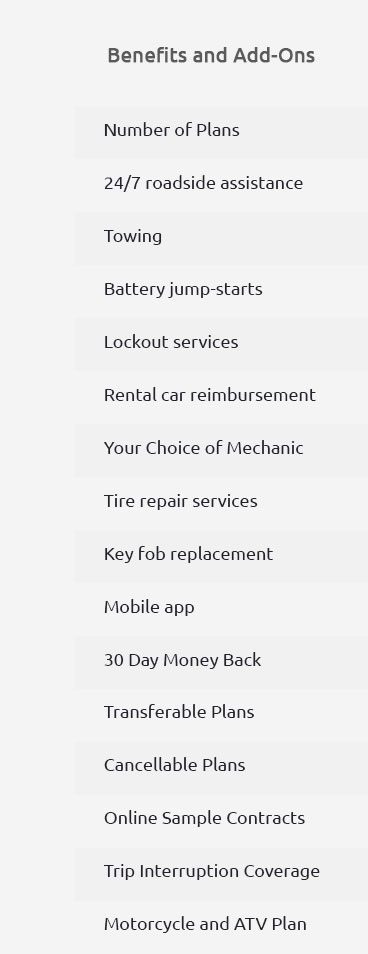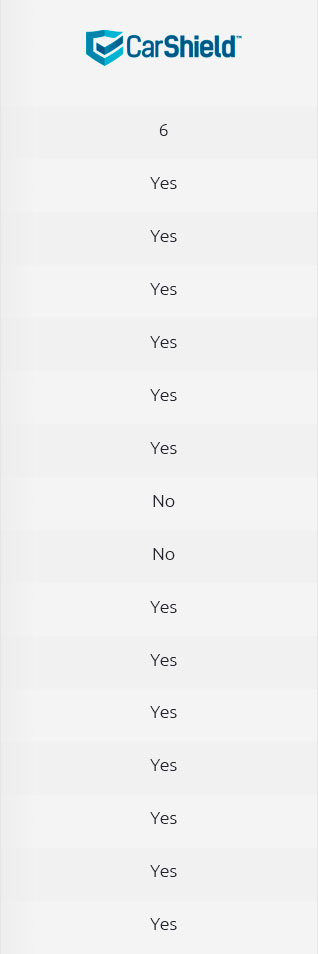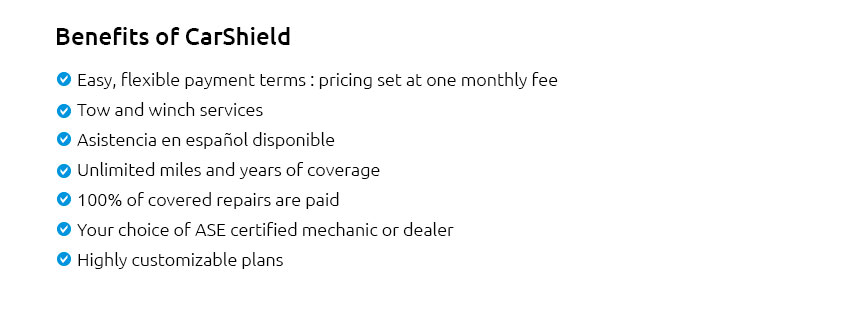 |
 |
 |
Select your vehicle to see available coverage options:
 |
 |
|||
 |
|||
 |
 |
 |
|
 |
|||
 |
|
 |
|
 |
|
 |
|
 |
|
 |
|
 |
|
 |
|

Auto Repair Warranties: A Comprehensive Coverage GuideAuto repair warranties are essential for U.S. consumers seeking peace of mind and protection from unexpected vehicle repair costs. These warranties can save you money and ensure your car remains in top condition. But with so many options available, understanding the ins and outs of auto repair warranties is crucial. Understanding Auto Repair WarrantiesAn auto repair warranty is a service contract that covers certain vehicle repairs and replacements after the manufacturer's warranty expires. It provides a safety net against hefty repair bills, allowing you to drive with confidence. Types of Auto Repair WarrantiesThere are several types of auto repair warranties available:
Benefits of Auto Repair WarrantiesWhy should you consider an auto repair warranty? Here are a few compelling reasons:
What's Covered?While coverage details vary by provider, most auto repair warranties cover:
Choosing the Right WarrantyWhen selecting an auto repair warranty, consider the age and condition of your vehicle, your driving habits, and your budget. For instance, if you're in California, a high-mileage driver might prioritize coverage that includes roadside assistance and nationwide repair networks. Don't forget to research the reputation of the warranty provider to ensure reliable service. For Used CarsPurchasing a mechanical warranty for used cars can be particularly beneficial. These warranties are designed to cover older vehicles that are more prone to breakdowns, providing you with the same peace of mind as a new car warranty. FAQs About Auto Repair WarrantiesWhat is typically not covered by an auto repair warranty?Most auto repair warranties do not cover routine maintenance like oil changes, brake pads, and tires. They also exclude damage due to accidents, misuse, or neglect. Can I transfer my auto repair warranty if I sell my car?Yes, many auto repair warranties are transferable to a new owner, which can increase the resale value of your vehicle. Check the specific terms of your warranty for transfer conditions. How do I file a claim on my auto repair warranty?To file a claim, contact your warranty provider before having any repair work done. They will guide you through the process and direct you to an approved repair facility if necessary. https://nyassembly.gov/comm/Affairs/20040322b/
For every part that is replaced in your motor vehicle, there is an express written warranty that applies to parts that are new, used, modified, rebuilt, ... https://carshield.com/
A vehicle service contract through CarShield is relatively inexpensive, and includes additional services you'll need to survive a major car repair. https://olive.com/
Many people believe they are purchasing an extended car warranty, whether it is from the dealer or third party. However, unless you have an extended warranty ...
|